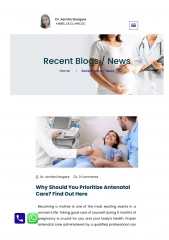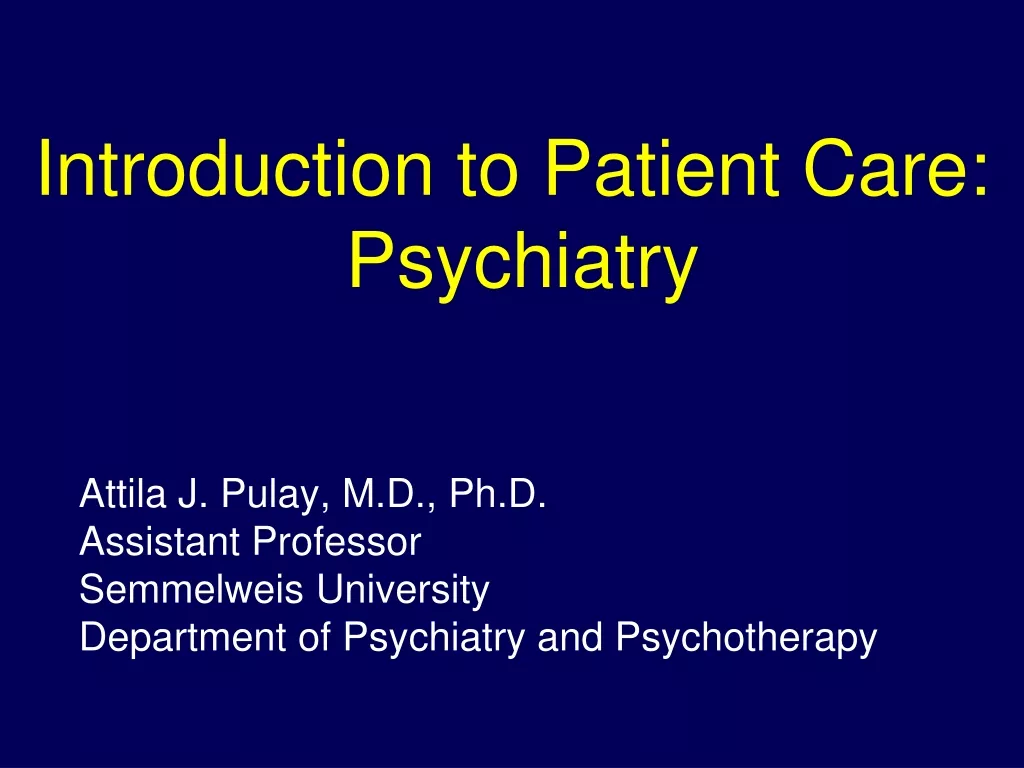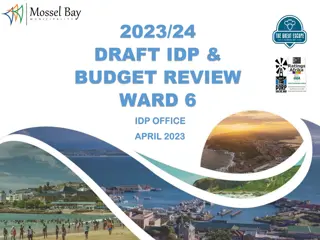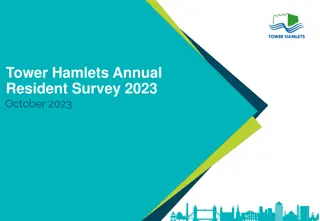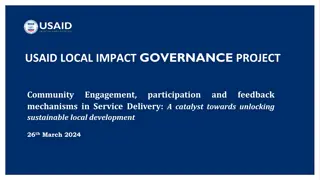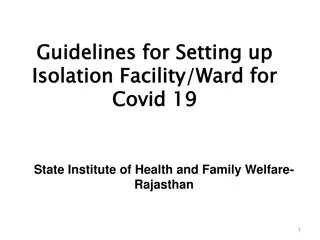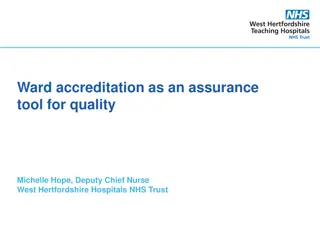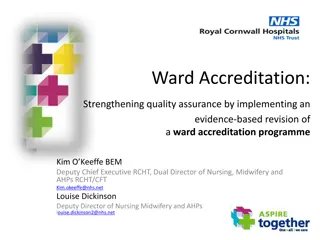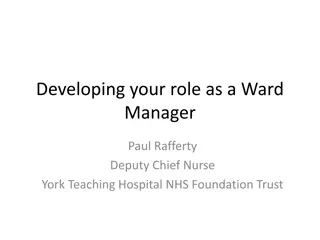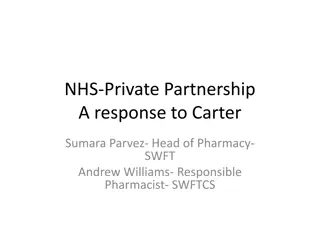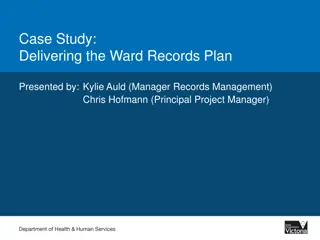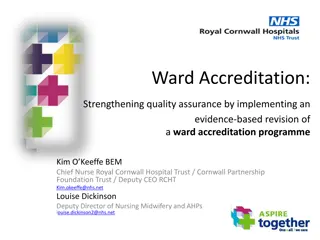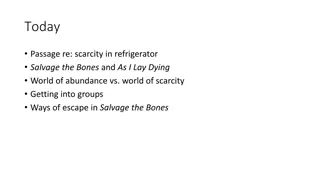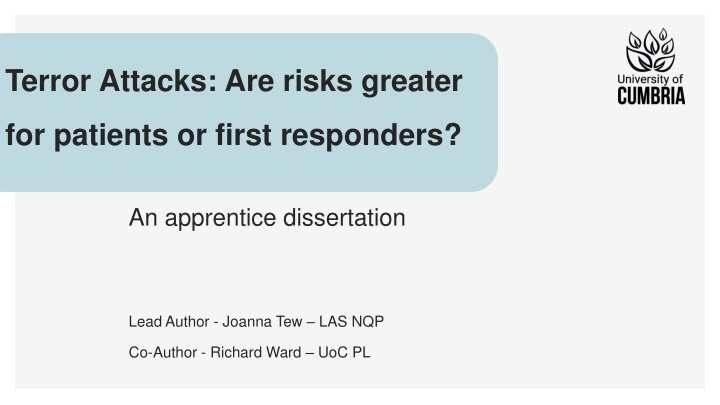
Impact of Terror Attacks on Mental Wellbeing of First Responders
Explore the psychological impact of real-life terror attacks on paramedics, focusing on PTSD rates and organizational preparedness. Understand how first responders cope with stressors and the need for better support mechanisms in the prehospital environment.
Download Presentation

Please find below an Image/Link to download the presentation.
The content on the website is provided AS IS for your information and personal use only. It may not be sold, licensed, or shared on other websites without obtaining consent from the author. If you encounter any issues during the download, it is possible that the publisher has removed the file from their server.
You are allowed to download the files provided on this website for personal or commercial use, subject to the condition that they are used lawfully. All files are the property of their respective owners.
The content on the website is provided AS IS for your information and personal use only. It may not be sold, licensed, or shared on other websites without obtaining consent from the author.
E N D
Presentation Transcript
Terror Attacks: Are risks greater for patients or first responders? An apprentice dissertation Lead Author - Joanna Tew LAS NQP Co-Author - Richard Ward UoC PL
Content Warning Some attendees may find the content of this session distressing. Please feel free to leave if you wish, at any point, and do reach out if you need support. Amongst other support mechanisms, TASC offer a range of support here: https://www.theasc.org.uk/apply-for-support/ Call 0300 373 0898
Academic Dissertation to Journal Literature Review 4 1 2 3 AUG 2023 Jo reached out and wanted advice on how to write for publication. Her feedback on her dissertation suggested she should consider it! OCT 2023 We met in October and agreed how we would cut down the dissertation into a 3000- word Journal review and work began. DEC 2023 After finishing the final edits, we submitted to the Journal of Paramedic Practice. JULY 2024 We heard back from the JPP. Overall, the reviewers were complimentary of the article but had some feedback we needed to respond to. Revisions submitted.
How does responding to a terror attack (TA) impact the mental wellbeing of paramedics? The literature review aims to critically analyse contemporary research that explores the psychological impact of real-life TAs on paramedics within the prehospital environment to answer the above question
Introduction Growing number of TAs in the last decade, evidenced to have a greater impact than natural disasters Unique challenges are faced at TAs with the observed increase in TAs shaping organisational preparedness Ambulance services have traditionally focused preparation on saving lives However, organisations are criticised for overlooking the psychological impact these events have on responders First responders have been found to develop higher rates of PTSD, second only to survivors
Introduction cont. The prevalence of PTSD in first responders varies across occupational groups, with high rates being found among ambulance personnel. Recent studies found that paramedics reported shortcomings in preparations to manage the personal stressors associated with TAs with expectations they continue on as normal after. While these issues profoundly impact the individual, they also affect the organisation with increased sick leave, retention issues and early retirement. The wider literature calls for consideration of this hidden risk when planning for future responses with improved individual emergency preparedness. The authors recognise exposure is rare, however paramedics are being required to work closer to attack sites. Most of our understanding of how TAs impact responders is from police and fire research.
It is becoming apparent that the biggest threat from a TA to responders is their psychological wellbeing, not the physical hazards at the incident (Thompson et al., 2014; Wilson, 2015).
To adequately prepare paramedics and manage the psychological burden we first need to understand what that burden is!
How does responding to a terror attack impact the mental wellbeing of paramedics? The literature review aims to critically analyse contemporary research that explores the psychological impact of real-life TAs on paramedics within the prehospital environment to answer the above question
Methods Literature Review Chosen Articles & Thematic analysis Literature Search The databases CINHAL, MEDLINE and Psych Ten articles were included in this review which articles were searched up to 6thSeptember explored terror attacks in London and 2023* Manchester (2017), Paris (2015), Nice (2016), Berlin (2016) and New York (2001). BOOLEAN searches were conducted using the key terms: (( terror attack OR Terrorist While most explored psychological impact 2- Attacks )) AND (( paramedic* OR 14 months post-attack, three explored the healthcare OR First Responder OR impact 5-15 years later emergency medical services OR EMT )) A simple thematic analysis was conducted AND (( PTSD OR wellbeing OR anxiety OR with several themes identified. Two included depression OR ' mental health OR Level of exposure & Level of preparedness psychological impact )).
Findings Level of Exposure Seven papers explored responders degree of exposure within a TA with prevalence of PTSD and other psychopathology. Two papers highlighted that first responders direct participation in rescuing victims from the attack site had higher prevalence of PTSD symptoms compared to those who did not participate . It also highlighted that the closer responders were to the threat within the site of a terror attack the higher the prevalence of PTSD. This includes attending unsecured scenes and witnessing violence. Symptoms of anxiety and depression were equally as high in those first responders who did not participate at the attack site and treated victims within hospitals. Further emotions such as unmanageable guilt and fear were found in those responders who treated victims away from the site of the attack.
Findings Level of Preparedness All ten papers addressed how responders degree of preparation directly impacted the development of PTSD and other psychopathological outcomes. Three quantitative studies addressed previous training , psychological awareness and unfamiliar tasks or working outside scope of practice with the prevalence of PTSD. Being confronted with an unfamiliar task was positively associated with a higher risk of developing PTSD, although this lacked statistical significance. An absence of training on the psychological consequences of responding to a TA correlated with the development of PSTD. The qualitative papers within this review drew out themes from responders of preparedness , failings and being ill- equipped to respond and recover from a TA. Overall, the findings suggests that the amount of psychological preparation, education and training responders received prior to attending a TA directly impacts their psychological well-being.
Discussion Education Changing operational model Lessons learned from humanitarian aid work Organisation preparedness WHO psychological first aid Scope of practice
Conclusion Paramedics in the UK are an integral part of the emergency response to TAs and encouraged to work closer to the threat level. Whilst this increases the emergency services ability to save more lives, if not mitigated it places a more significant risk on paramedics developing PTSD. As organisations enhance the capabilities of paramedics to work in these hazardous environments, the psychological impact needs to be understood and reflected in policy. Paramedics need to be both psychologically prepared and supported in their response to a TA, the absence of which may worsen the burden on their mental well-being. Training and education should be adapted to include education for paramedics to understand and normalise the extreme emotions affected staff may experience. Further still, individual stress management could be incorporated into Major Incident Training to improve paramedics resilience in dealing with unfamiliar or unsettling tasks. Further research is required within paramedic populations to better understand this risk and how it could be managed.
Any Questions? Joanna Tew Joanna.Tew@NHS.net Richard Ward Richard.Ward@Cumbria.ac.uk
References (1/2) Aveyard H. 2019. Doing a Literature Review in Health and Social Care : a Practical Guide. 4th ed. S.L.: Open University Press. Bentz L, VandentorrenS, Fabre R, Bride J, PirardP, Doulet N, Baubet T, MotreffY, PradierC. 2021. Mental health impact among hospital staff in the aftermath of the Nice 2016 terror attack: the ECHOS de Nice study. BMC Public Health. 21(1). doi:https://doi.org/10.1186/s12889-021-11438-9. Berger W, Coutinho ESF, Figueira I, Marques-Portella C, Luz MP, NeylanTC, MarmarCR, MendlowiczMV. 2011. Rescuers at risk: a systematic review and meta-regression analysis of the worldwide current prevalence and correlates of PTSD in rescue workers. Social Psychiatry and Psychiatric Epidemiology. 47(6):1001 1011. doi:https://doi.org/10.1007/s00127-011-0408-2. Coughlan M, Cronin P. 2021. Doing A Literature Review In Nursing, Health And Social Care. 3rd ed. S.L.: Sage Publications. Day A, StaniszewskaS, Bullock I. 2021. Planning for Chaos: Developing the Concept of Emergency Preparedness through the Experience of the Paramedic. Journal of Emergency Nursing. 47(3):487 502. doi:https://doi.org/10.1016/j.jen.2021.02.001. De Stefano C, OrriM, AgostinucciJM, ZouaghiH, LapostolleF, Baubet T, Adnet F. 2018. Early psychological impact of Paris terrorist attacks on healthcare emergency staff: A cross-sectional study. Depression and Anxiety. 35(3):275 282. doi:https://doi.org/10.1002/da.22724. Hugelius K, EdelbringS, Blomberg K. 2021. Prehospital major incident management: how do training and real-life situations relate? A qualitative study. BMJ Open. 11(9):e048792. doi:https://doi.org/10.1136/bmjopen-2021-048792. KerslakeB. 2019. The KerslakeReport: An independent review into the preparedness for, and emergency response to, the Manchester Arena attack on 22nd May 2017 . [accessed 2023 Mar 23]. https://www.greatermanchester- ca.gov.uk/media/1271/the-kerslake-report.pdf. Lucraft M. 2019. INQUESTS ARISING FROM THE DEATHS IN THE LONDON BRIDGE AND BOROUGH MARKET TERROR ATTACK REGULATION 28 REPORT ON ACTION TO PREVENT FUTURE DEATHS. [accessed 2022 Dec 19]. https://www.judiciary.uk/wp- content/uploads/2019/11/London-Bridge-Borough-Market-Terror-Attack-2019-0332.pdf. Moran CG, Webb C, BrohiK, Smith M, Willett K. 2017. Lessons in planning from mass casualty events in UK. BMJ. 359:j4765. doi:https://doi.org/10.1136/bmj.j4765. https://www.bmj.com/content/359/bmj.j4765. MotreffY, Baubet T, PirardP, Rabet G, Petitclerc M, Stene LE, Vuillermoz C, Chauvin P, VandentorrenS. 2020. Factors associated with PTSD and partial PTSD among first responders following the Paris terror attacks in November 2015. Journal of Psychiatric Research. 121(121):143 150. doi:https://doi.org/10.1016/j.jpsychires.2019.11.018. MotreffY, PirardP, Vuillermoz C, RabetG, Petitclerc M, Stene LE, Baubet T, Chauvin P, VandentorrenS. 2021. Mental health care utilization by first responders after Paris attacks. Occupational Medicine. 72(2):81 90. doi:https://doi.org/10.1093/occmed/kqab150.
References (2/2) National Ambulance Resilience Unit (NARU). 2019. National Ambulance Service Command and Control Guidance. [accessed 2023 March 20]. https://naru.org.uk/wp-content/uploads/2021/03/NARU-COMMAND-AND-CONTROL-GUIDE-V3.1- 07.2019.pdf. National Ambulance Resilience Unit (NARU). 2024. National Ambulance Service Command and Control Guidance. [accessed 2024 July 30]. https://naru.s3.eu-west-2.amazonaws.com/wp- content/uploads/2024/04/17181513/NARUCommandGuidanceV5.02024.pdf PriouxC, Marillier M, C cile Vuillermoz, St phanie Vandentorren, RabetG, Matthieu Petitclerc, Thierry Baubet, Lise Eilin Stene, Philippe Pirard, Yvon Motreff. 2023. PTSD and Partial PTSD among First Responders One and Five Years after the Paris Terror Attacks in November 2015. International Journal of Environmental Research and Public Health. 20(5):4160 4160. doi:https://doi.org/10.3390/ijerph20054160. Rathore SA. 2016. Brussels Attack: Lessons Learned. Counter Terrorist Trends and Analysis . 8:4 8. SkryabinaEA, Betts N, Aml t R, Reedy G. 2021. Understanding the psychological impacts of responding to a terrorist incident. European Journal of Psychotraumatology. 12(1). doi:https://doi.org/10.1080/20008198.2021.1959116. Smith E, Walker T, Burkle FM. 2019. Lessons in Post-Disaster Self-Care From 9/11 Paramedics and Emergency Medical Technicians. Prehospital and Disaster Medicine. 34(03):335 339. doi:https://doi.org/10.1017/s1049023x19004382. Smith EC, Burkle FM. 2018. Paramedic and Emergency Medical Technician Reflections on the Ongoing Impact of the 9/11 Terrorist Attacks. Prehospital and Disaster Medicine. 34(1):56 61. doi:https://doi.org/10.1017/s1049023x18001255. Thompson J, Rehn M, LossiusHM, Lockey D. 2014. Risks to emergency medical responders at terrorist incidents: a narrative review of the medical literature. Critical Care. 18(5). doi:https://doi.org/10.1186/s13054-014-0521-1. Tomberg S. 2015. The Initial Response to the Boston Marathon Bombing: Lessons Learned to Prepare for the Next Disaster. The Journal of Emergency Medicine. 48(5):650 651. doi:https://doi.org/10.1016/j.jemermed.2015.03.038. VandentorrenS, PirardP, SannaA, Aubert L, MotreffY, DantchevN, Lesieur S, Chauvin P, Baubet T. 2018. Healthcare provision and the psychological, somatic and social impact on people involved in the terror attacks in January 2015 in Paris: cohort study. The British Journal of Psychiatry. 212(4):207 214. doi:https://doi.org/10.1192/bjp.2017.63. Wesemann U, Applewhite B, Himmerich H. 2022. Investigating the impact of terrorist attacks on the mental health of emergency responders: systematic review. BJPsychOpen. 8(4). doi:https://doi.org/10.1192/bjo.2022.69. Wilson LC. 2015. A systematic review of probable posttraumatic stress disorder in first responders following man-made mass violence. Psychiatry Research. 229(1-2):21 26. doi:https://doi.org/10.1016/j.psychres.2015.06.015.

